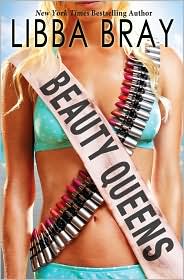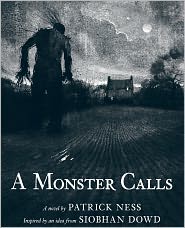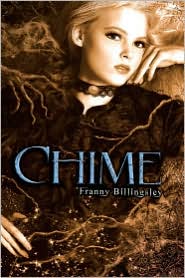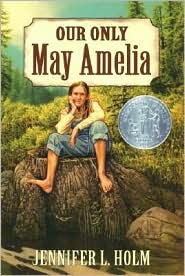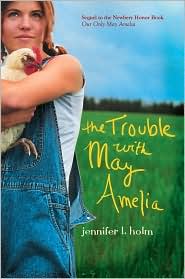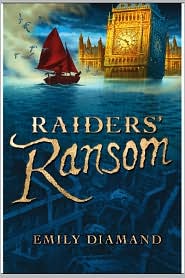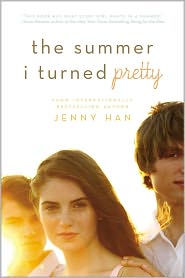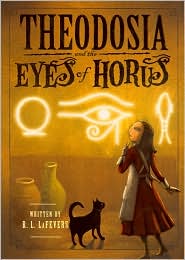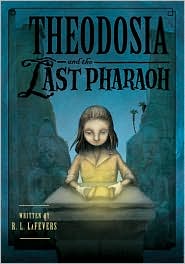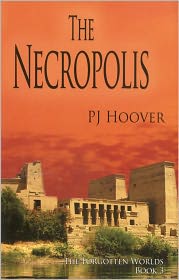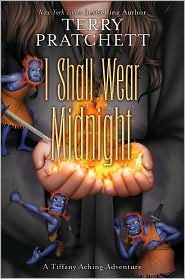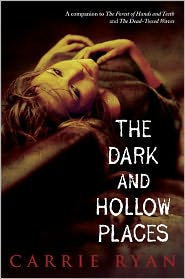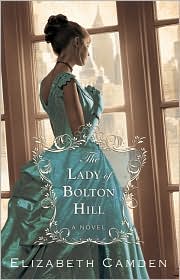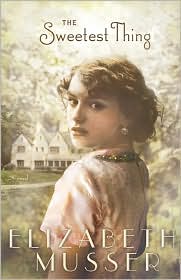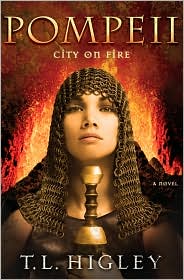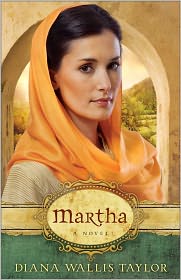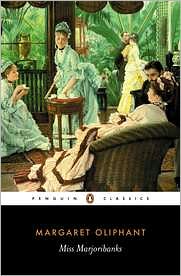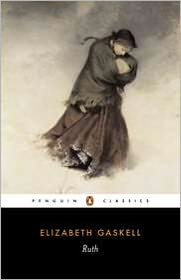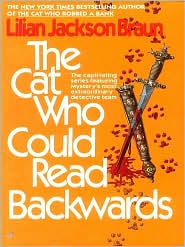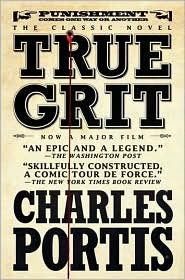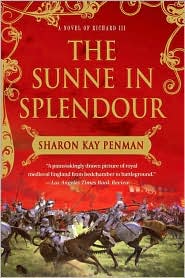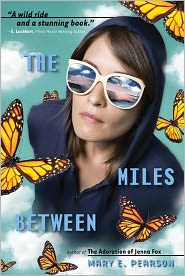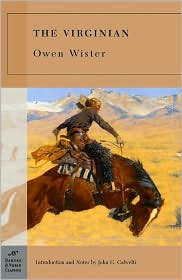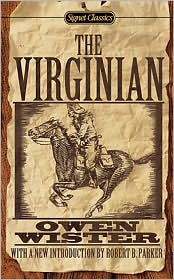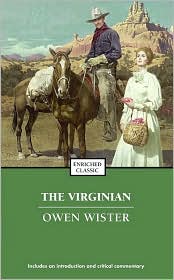I discovered two great authors this May! I just LOVE, LOVE, LOVE Rex Stout's Nero Wolfe series. I wish my library had more of his books! I really do. If they had as many Stout books as they did Christie, I'd be very, very happy! Have you read Rex Stout? Are you familiar with Nero Wolfe and Archie Goodwin? Do you have a favorite novel or novella from this series?
My other discovery this month is Pearl S. Buck. I read two incredibly wonderful books that I just loved--Kinfolk and East Wind: West Wind. The other Buck novels I read this month--The Good Earth, Sons, A House Divided, and Peony--I had mixed feelings about. But even though I haven't loved every book of hers unconditionally, I'm happy to have discovered her. Have you read Pearl S. Buck? Do you have a favorite? I'd encourage you not to judge her by The Good Earth alone.
While most of this month's reads are older titles--my earliest being 1817--I was able to read thirteen 2011 books. (Including City of Fallen Angels by Cassandra Clare, Stay. Deb Caletti, The Throne of Fire. Kane Chronicles #2 Rick Riordan, What Happened To Goodbye. Sarah Dessen, and Bumped by Megan McCafferty.) I'm hoping to read even more 2011 titles in June and July.
I still haven't found the perfect balance in reading and blogging. But I was able to read this month for each of my blogs.
As far as challenges go, I was able to read at least one book for each of these challenges: New Author Challenge, 2011 TBR Challenge, TBR Pile Challenge, Historical Fiction, Chunkster Challenge, Victorian Literature Challenge, Cruisin' Thru the Cozies. Spring Reading Thing, Once Upon a Time.
This month I read 33 books.
Board Books: 1; Picture Books: 6; Middle Grade: 1; Young Adult: 5; Adult: 14; Christian Nonfiction: 4; Nonfiction 2.
Review Copies: 9; Library Books: 19; Bought Books: 5.
My top five:
Kinfolk. Pearl S. Buck.
Some Buried Caesar. Nero Wolfe Mystery. Rex Stout.
The Virginian. Owen Wister.
The Last Chronicle of Barset. Anthony Trollope.
What Happened To Goodbye. Sarah Dessen.
East Wind: West Wind. Pearl S. Buck. 1930/1995. Moyer Bell. 288 pages.
Black Orchids. A Nero Wolfe Mystery. Rex Stout. 1941/1942. Random House. 208 pages.
The Good Earth. Pearl S. Buck. 1931/2004. Simon & Schuster. 368 pages.
Sons. Pearl S. Buck. 1932/2005. Moyer Bell. 320 pages.
Kinfolk. Pearl S. Buck. 1945/2004. Moyer Bell. 408 pages.
The Silent Speaker. Rex Stout. 1946/1994. Random House. 288 pages.
Northanger Abbey. Jane Austen. 1817/1992. Everyman's Library. 288 pages.
The Pickwick Papers. Charles Dickens. 1836/1837/1999. Penguin Classics. 810 pages.
Some Buried Caesar. Nero Wolfe Mystery. Rex Stout. 1938. Random House. 288 pages.
The Virginian. Owen Wister. 1902. Penguin Classics. 370 pages.
A House Divided. Pearl S. Buck. 1935/2006. Moyer Bell. 348 pages.
Peony. Pearl S. Buck. 1948/2006. Moyer Bell. 352 pages.
The Penelopiad: The Myth of Penelope and Odysseus. Margaret Atwood. 2005. 220 pages.
The Last Chronicle of Barset. Anthony Trollope. 1867. 928 pages.
The Throne of Fire. Kane Chronicles #2 Rick Riordan. 2011. Hyperion. 464 pages.
City of Fallen Angels by Cassandra Clare. (Mortal Instruments #4) 2011. Simon & Schuster. 424 pages.
Stay. Deb Caletti. 2011. Simon & Schuster. 320 pages.
Bumped by Megan McCafferty. 2011. HarperCollins. 336 pages.
What Happened To Goodbye. Sarah Dessen. 2011. Penguin. 416 pages.
The Miles Between. Mary E. Pearson. 2009. Henry Holt. 272 pages.
The Story of Britain From the Norman Conquest to the European Union by Patrick Dillon. 2011. Candlewick Press. 352 pages.
Your Mommy Was Just Like You. Kelly Bennett. Illustrated by David Walker. 2011. Penguin. 32 pages.
My Side of the Car. Kate Feiffer. Illustrated by Jules Feiffer. 2011. Candlewick. 32 pages.
Chicken, Chicken, Duck! Nadia Krilanovich. 2011. Random House. 32 pages.
The Boss Baby. Marla Frazee. 2010. Simon & Schuster. 40 pages.
Tweak Tweak by Eve Bunting. Illustrated by Sergio Ruzzier. 2011. Houghton Mifflin Harcourt. 40 pages.
A Ball for Daisy. Chris Raschka. 2011. Random House. 32 pages.
The Holiness of God. R.C. Spoul. 1985. Tyndale. 280 pages.
Why One Way?: Defending an Exclusive Claim in an Inclusive World. John MacArthur. 2002. Thomas Nelson. 96 pages.
Joni. Joni Eareckson Tada. 1976. 224 pages.
Our Awesome God. John MacArthur. 1993/2001. Crossway Books. 176 pages.
© 2011 Becky Laney of Becky's Book Reviews
My other discovery this month is Pearl S. Buck. I read two incredibly wonderful books that I just loved--Kinfolk and East Wind: West Wind. The other Buck novels I read this month--The Good Earth, Sons, A House Divided, and Peony--I had mixed feelings about. But even though I haven't loved every book of hers unconditionally, I'm happy to have discovered her. Have you read Pearl S. Buck? Do you have a favorite? I'd encourage you not to judge her by The Good Earth alone.
While most of this month's reads are older titles--my earliest being 1817--I was able to read thirteen 2011 books. (Including City of Fallen Angels by Cassandra Clare, Stay. Deb Caletti, The Throne of Fire. Kane Chronicles #2 Rick Riordan, What Happened To Goodbye. Sarah Dessen, and Bumped by Megan McCafferty.) I'm hoping to read even more 2011 titles in June and July.
I still haven't found the perfect balance in reading and blogging. But I was able to read this month for each of my blogs.
As far as challenges go, I was able to read at least one book for each of these challenges: New Author Challenge, 2011 TBR Challenge, TBR Pile Challenge, Historical Fiction, Chunkster Challenge, Victorian Literature Challenge, Cruisin' Thru the Cozies. Spring Reading Thing, Once Upon a Time.
This month I read 33 books.
Board Books: 1; Picture Books: 6; Middle Grade: 1; Young Adult: 5; Adult: 14; Christian Nonfiction: 4; Nonfiction 2.
Review Copies: 9; Library Books: 19; Bought Books: 5.
My top five:
Kinfolk. Pearl S. Buck.
Some Buried Caesar. Nero Wolfe Mystery. Rex Stout.
The Virginian. Owen Wister.
The Last Chronicle of Barset. Anthony Trollope.
What Happened To Goodbye. Sarah Dessen.
Reviews at Becky's Book Reviews
East Wind: West Wind. Pearl S. Buck. 1930/1995. Moyer Bell. 288 pages.
Black Orchids. A Nero Wolfe Mystery. Rex Stout. 1941/1942. Random House. 208 pages.
The Good Earth. Pearl S. Buck. 1931/2004. Simon & Schuster. 368 pages.
Sons. Pearl S. Buck. 1932/2005. Moyer Bell. 320 pages.
Kinfolk. Pearl S. Buck. 1945/2004. Moyer Bell. 408 pages.
The Silent Speaker. Rex Stout. 1946/1994. Random House. 288 pages.
Northanger Abbey. Jane Austen. 1817/1992. Everyman's Library. 288 pages.
The Pickwick Papers. Charles Dickens. 1836/1837/1999. Penguin Classics. 810 pages.
Some Buried Caesar. Nero Wolfe Mystery. Rex Stout. 1938. Random House. 288 pages.
The Virginian. Owen Wister. 1902. Penguin Classics. 370 pages.
A House Divided. Pearl S. Buck. 1935/2006. Moyer Bell. 348 pages.
Peony. Pearl S. Buck. 1948/2006. Moyer Bell. 352 pages.
The Penelopiad: The Myth of Penelope and Odysseus. Margaret Atwood. 2005. 220 pages.
The Last Chronicle of Barset. Anthony Trollope. 1867. 928 pages.
The Throne of Fire. Kane Chronicles #2 Rick Riordan. 2011. Hyperion. 464 pages.
City of Fallen Angels by Cassandra Clare. (Mortal Instruments #4) 2011. Simon & Schuster. 424 pages.
Stay. Deb Caletti. 2011. Simon & Schuster. 320 pages.
Bumped by Megan McCafferty. 2011. HarperCollins. 336 pages.
What Happened To Goodbye. Sarah Dessen. 2011. Penguin. 416 pages.
The Miles Between. Mary E. Pearson. 2009. Henry Holt. 272 pages.
The Story of Britain From the Norman Conquest to the European Union by Patrick Dillon. 2011. Candlewick Press. 352 pages.
Reviews at Young Readers
Your Mommy Was Just Like You. Kelly Bennett. Illustrated by David Walker. 2011. Penguin. 32 pages.
My Side of the Car. Kate Feiffer. Illustrated by Jules Feiffer. 2011. Candlewick. 32 pages.
Chicken, Chicken, Duck! Nadia Krilanovich. 2011. Random House. 32 pages.
The Boss Baby. Marla Frazee. 2010. Simon & Schuster. 40 pages.
Tweak Tweak by Eve Bunting. Illustrated by Sergio Ruzzier. 2011. Houghton Mifflin Harcourt. 40 pages.
A Ball for Daisy. Chris Raschka. 2011. Random House. 32 pages.
Everywhere Babies. Susan Meyers. Illustrated by Marla Frazee. 2001/2011. Houghton Mifflin Harcourt. 30 pages.
The Watcher: Jane Goodall's Life with the Chimps. Jeannette Winter. 2011. Random House. 48 pages. Reviews at Operation Actually Read Bible
Why One Way?: Defending an Exclusive Claim in an Inclusive World. John MacArthur. 2002. Thomas Nelson. 96 pages.
Joni. Joni Eareckson Tada. 1976. 224 pages.
Our Awesome God. John MacArthur. 1993/2001. Crossway Books. 176 pages.
© 2011 Becky Laney of Becky's Book Reviews
 2:26 PM
2:26 PM
 Nikki
Nikki

 Posted in
Posted in






